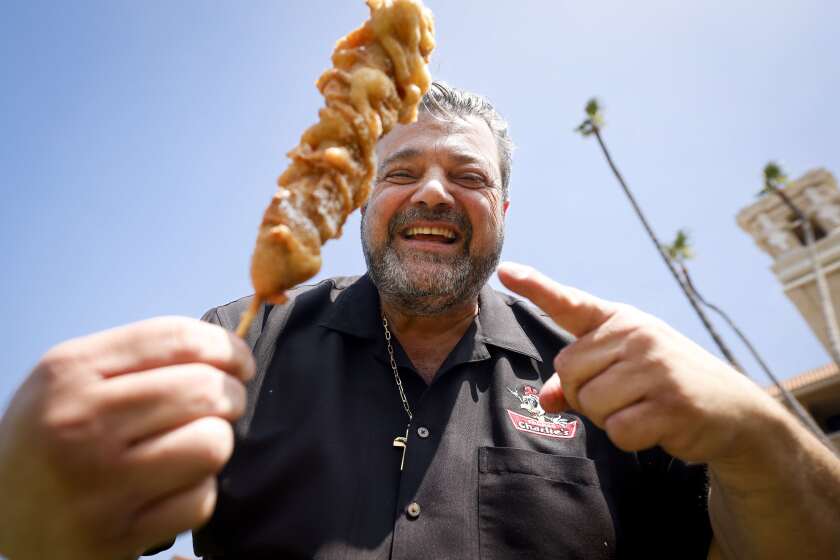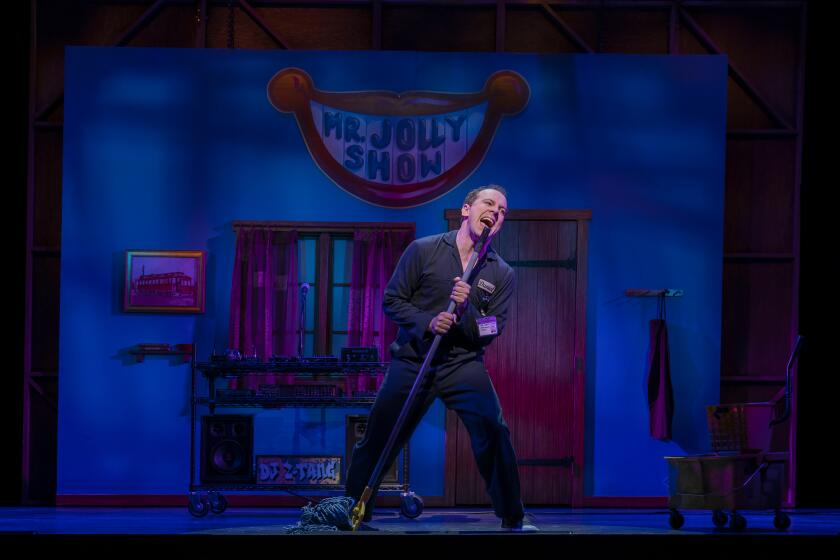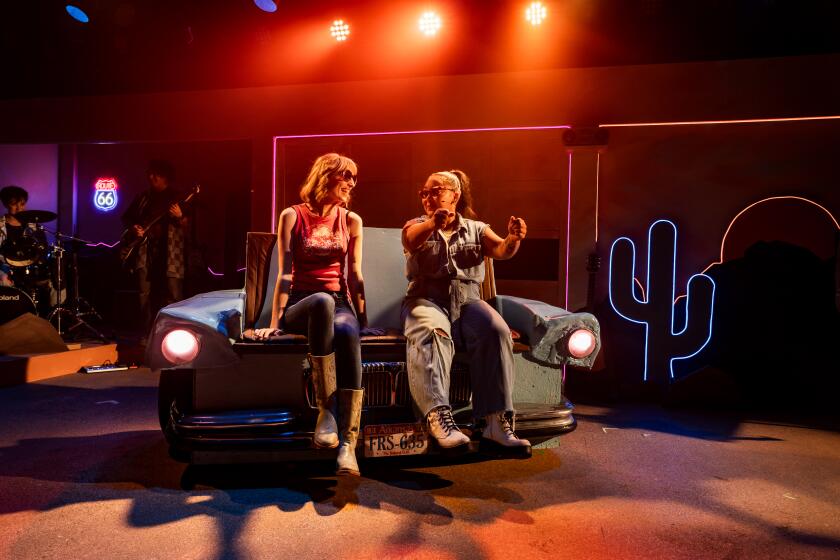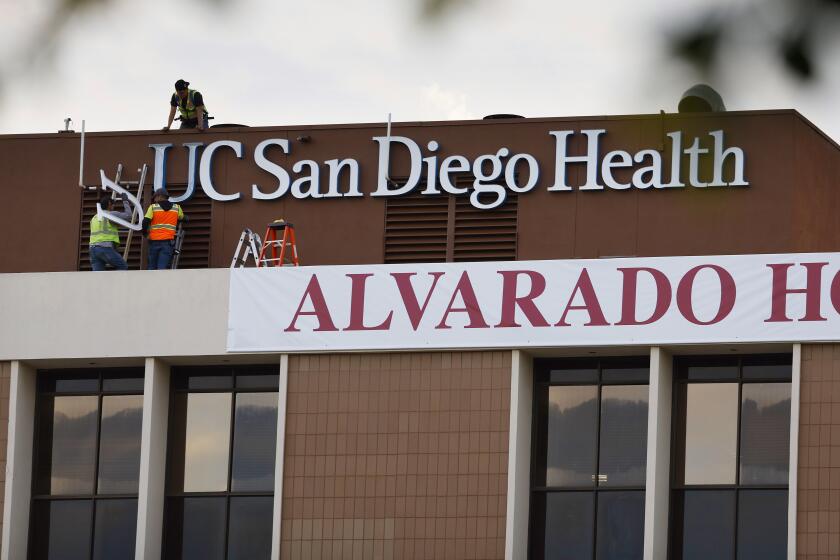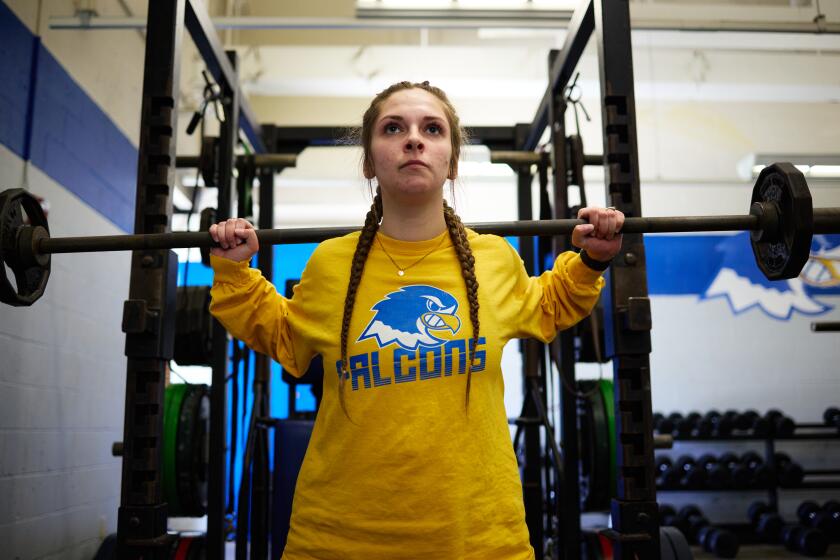Costume stitchers creating special face mask for the lip-reading community
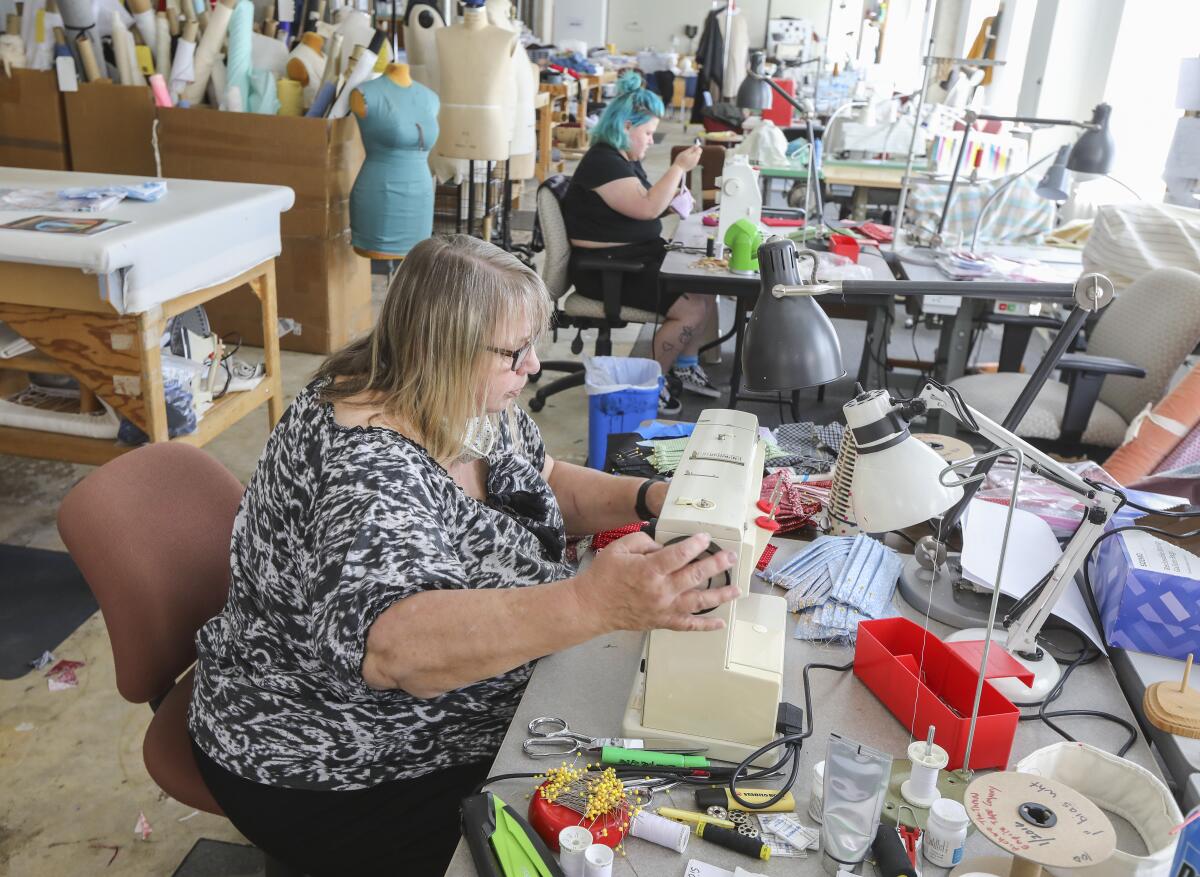
Born deaf, Michael Conley of North Park said mask orders have made communicating with others very difficult
While the county’s face mask order may be a valuable tool for reducing the spread of COVID-19, it has had an unexpected negative impact on the hearing-impaired community, who can no longer read lips when they interact with masked employees at essential businesses.
Michael Conley was born deaf and relies on lip-reading to interact with the public as well as his colleagues and customers as membership services manager at the Fleet Science Center in Balboa Park.
“As soon as I heard that masks were going to be required, I knew I was in big trouble,” said Conley. “All I see is a face. I cannot make out facial gestures, which is a big part of understanding what a person is saying. Because I can’t hear, if people are speaking with a mask, I don’t even know they are speaking to me.”
Over the past two months, the North Park resident has developed a few ways to bridge the communication gap, like carrying along paper and pen to write notes at the pharmacy and bringing a friend to restaurants who can order takeout for them both.
But a new prototype face mask, being designed in Conley’s honor by the manager of San Diego Opera’s costume shop, could make life a lot easier for him and many others with hearing loss in San Diego County.
San Diego Opera’s Ingrid Helton is hard at work on a washable cloth face mask that will have a clear, unfoggable plastic shield over the mouth area. She hopes to have a couple of prototypes finished next week to send to the Fleet Science Center for testing. The goal is to find the best mask design and make enough for all of the Fleet employees so that Conley, and other members of the deaf community, can read their lips.
The idea for the clear panel face masks came from Chris LaZich, the museum’s vice president of advancement. During an online staff meeting after the museum shut down in March, Conley told her about the challenges he was having with the face mask health order.
“In planning for reopening the museum I took this to heart. I thought there has to be a way to help people like him, as well as people for whom English isn’t their first language,” said LaZich, who spent 26 years at San Diego Opera before joining the Fleet in 2017. “Then I thought, if anyone is capable of working with unusual designs, it’s the team at the Opera. I’ve seen them make things out of the craziest materials.”
So she reached out to Helton, who has worked in San Diego Opera’s costume department off and on for the past 16 years. Helton was idled after the opera company was forced to postpone all three of its planned spring productions. To make productive use of her time, she launched a face-mask sewing project.
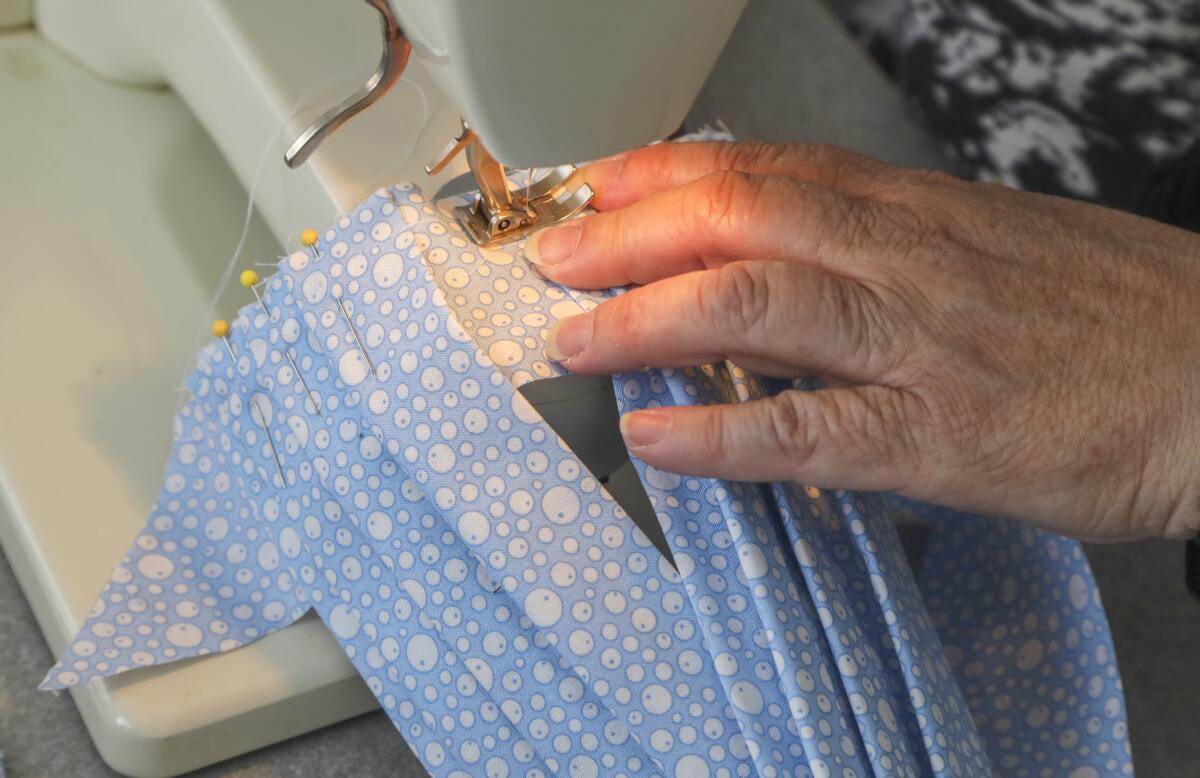
Over the past two months, Helton has led an all-volunteer team of seven costume and wardrobe stitchers in sewing and donating nearly 1,000 cloth face masks to Salud Para La Gente, a bilingual health clinic in Watsonville that is handing the masks out to migrant farm workers and their families in the Central Valley.
Working with her 23-year-old daughter Delpha Hanson, Helton has been assembling and delivering mask-sewing kits to seamstresses, using her own home stash of cotton fabrics and elastic and bias tape donated by San Diego Opera. She said it’s been a rewarding project.
“It’s been kind of fun to watch it all happen and see what fabrics people choose. Overall, people are really happy to do it and support whatever cause is in need,” Helton said. “Once they start doing it, it takes their minds off other issues and gives them a purpose during the day.”
Helton said she was intrigued when LaZich called her with the idea of creating the lip-reading masks. After doing some online research for similar masks made for health workers around the country, she began designing her own pattern. She has ordered several grades of plastic and will create a handful of prototypes she hopes to send to the Fleet next week. Conley has volunteered to serve as the mask tester.
Once they arrive at the perfect design, Helton said the Fleet will pay her team to create enough masks for the whole Fleet staff in time for the museum’s reopening. If other companies are interested in ordering the masks, Helton said she will take orders at (619) 578-8758 or ingridsewing@cox.net. The project will provide much-needed income for costume workers who may not get back to work for many months.
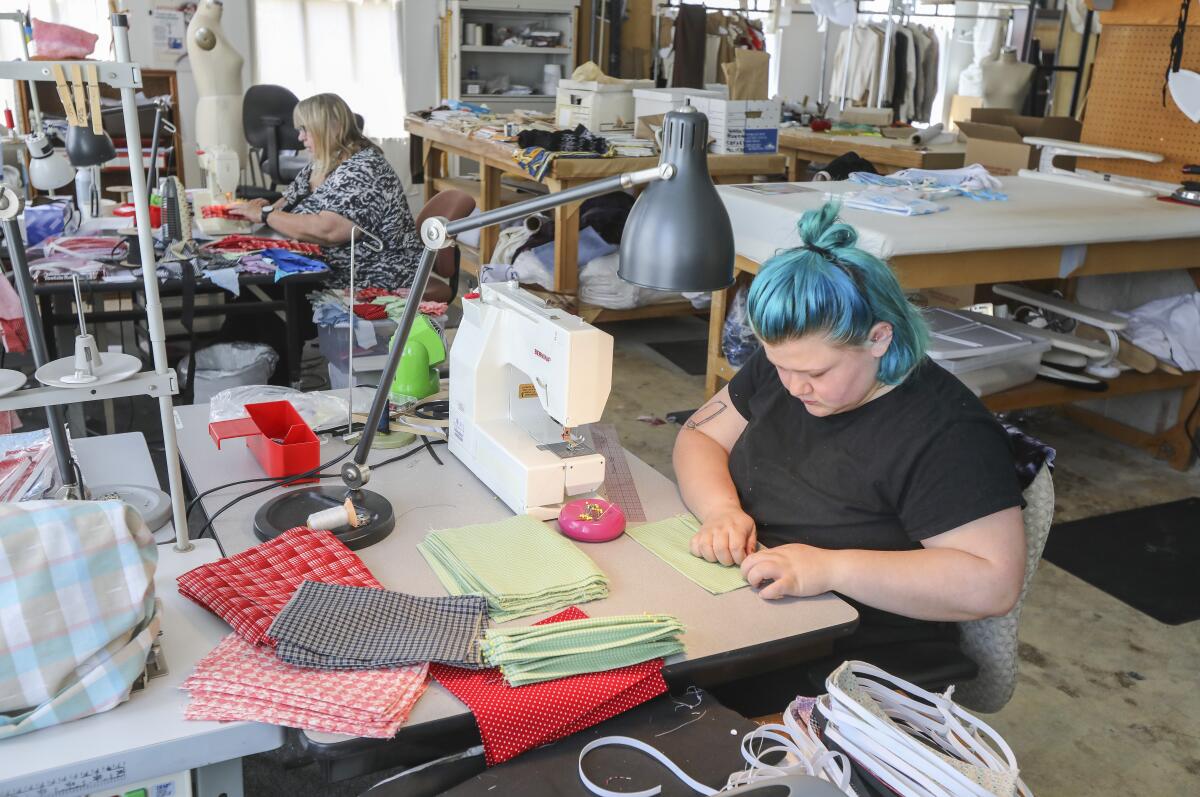
Even though he doesn’t need the mask as a lip-reader himself, Conley said will wear one to help raise awareness of the problems the face mask rule has created for people like himself.
Conley was raised in a small Kansas town, finished high school in Chicago, earned an undergraduate degree at the University of Delaware and a master’s degree in screenwriting from Columbia University in New York. He also spent a summer studying at Gallaudet University in Washington, D.C., the only university in the world designed for deaf students.
He moved to San Diego 30 years ago and found his job at the Fleet just six week after arriving in town. Conley is also a playwright. He has written several one-acts as well as a full-length play, “Reading Lips,” inspired by his own challenges of navigating life as a gay and deaf man.
Conley uses a cochlear implant and a hearing aid, which allow him to hear sounds. He can’t understand the sounds, but they do signal to him when someone is speaking so he can read their lips or use sign language. He said he’s grateful that some grocery workers, restaurant staff and the pharmacist in his neighborhood recognize him when he goes out on essential errands. They are patient while he writes notes to them and they use hand gestures to ask how he’d like his groceries packed.
“Perhaps the best accommodation someone has made was at a restaurant in North Park, where I live,” he said. “I wanted to go in on my own, but I was dreading it. Finally, I decided to try. As soon as I walked in, the service person took her mask down. She recognized me from before. I was very touched.”
Conley said he hopes the lip-reading masks are eventually adopted by many businesses that deal with the public.
“Who knows? It might catch on as the latest trend and other people would want one,” he said. “It might even help hearing people more fully grasp what other people are saying. After all, something sounds better if you can see that the person is smiling.”
Get Essential San Diego, weekday mornings
Get top headlines from the Union-Tribune in your inbox weekday mornings, including top news, local, sports, business, entertainment and opinion.
You may occasionally receive promotional content from the San Diego Union-Tribune.


